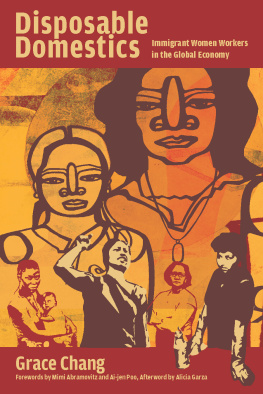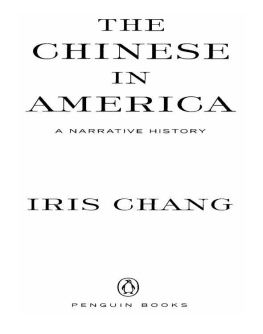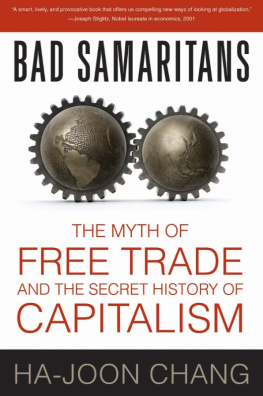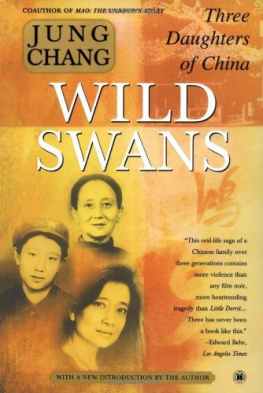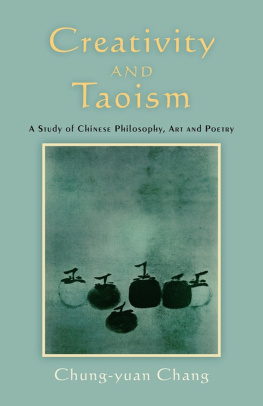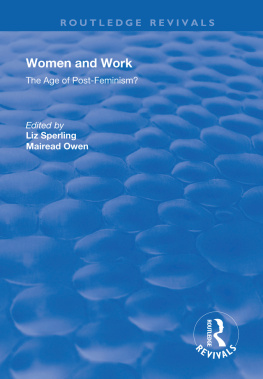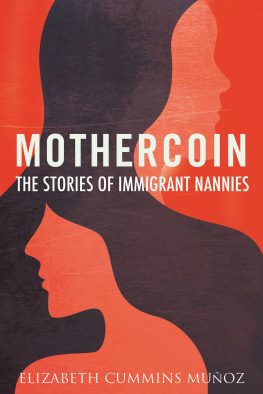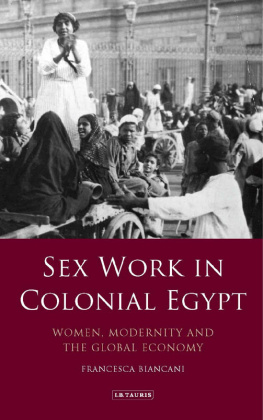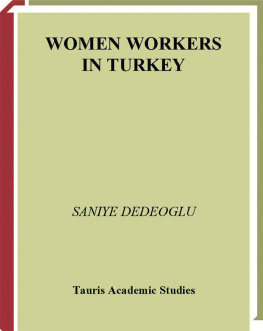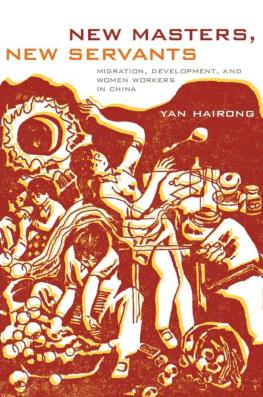Praise for the 2016 Edition
Disposable Domestics gives readers a 360-degree perspective on both the lives of immigrant women laborers and the macro and global forces that shape them. When first published over fifteen years ago, the book was eye-opening. Today, readers will see how Grace Changs work foretold the future about the indispensable role of women from the global South in the grinding machination of economic globalization; the evidence of their collective indispensability and individual disposability is now all around and much more visible. The power and durability of Disposable Domestics is due in large measure to Changs activist-scholar orientation and sensibilities, which generated descriptions that humanize the women and analysis that explains how they are dehumanized and exploited, and shows who benefits and how.
Margo Okazawa-Rey, coeditor of Womens Lives: Multicultural Perspectives
Praise for the 2000 Edition
Disposable Domestics is a compelling book that is all too rare these days, combining academic research and theory, political conviction, and moral outrage.
Kitty Calavita, University of California at Irvine
With patience and clarity, Grace Chang shows us that the work of immigrant women is an indispensable feature of global capitalism. Their blood and sweat has been rewarded only by increasing government regulation, domestic violence, and cultural commodification. Feminists and labor organizers beware! Disposable Domestics names the hot-button social justice issue of this decade.
Karin Aguilar-San Juan, editor of The State of Asian America
In her illuminating book, Grace Chang shows us clearly how global capital and international policy are linked with domestic policy to trap immigrant women in their paradoxical position as the most valuable and the most vulnerable workers in the United States today, whether they are domestics and nannies in their homes, farmworkers who put food on their tables, or factory workers who benefit both the US and their homeland economies. Changs book exposes the hypocrisy, cruelty, and insanity of anti-immigrant policies and attitudes that persist toward those whose labor benefits others so much more than themselves. Chang also offers an inspiring account of how immigrant women and immigrant advocates are organizing to fight for justice. I hope everyone will read this important book.
Elaine Kim, University of California at Berkeley
Grace Chang makes an enormous contribution by showing how immigrant women workers facilitate the operation of the global economy. These are histories at risk of invisibility.
Saskia Sassen, author of Guests and Aliens
Disposable Domestics shows the underbelly of the dot-com economic boomthat is, the women who toil behind the scenes as caretakers and factory workers for wages that keep them mired in poverty. With great poignancy, Grace Chang traces how austerity programs imposed by the International Monetary Fund force poor women to emigrate to the United States, how they are vilified and exploited in their host country, and how they are fighting against tremendous odds to secure their basic rights. It is an essential book for those trying to connect the dots between global economic policies and womens labor.
Medea Benjamin, founding director, Global Exchange
Grace Chang presents an eye-opening and pathbreaking account of how so-called welfare reform in the United States, combined with racist anti-immigrant policies, has enabled Americans to take advantage of the labor of immigrant women. Chang demolishes the myth that immigrant women are welfare queens and baby machines. In this book, she documents the essential role that immigrant women play in the US economy as workers who clean houses, offices, and hotel rooms and also take care of our elderly and children. Disposable Domestics should be read by anyone wanting to understand the realities of how the US political and economic system is treating immigrant women at the beginning of the twenty-first century.
Evelyn Nakano Glenn, University of California at Berkeley
Breeding Ignorance, Breeding Hatred
Alien Acts
People who have recently immigrated to New York have been among our most valuable resources throughout the citys history, and it is only right that we give them back their share of what they have contributed to us.... Please use this manual in a spirit of generosity and fairness. No one wants New Yorkers to be overly dependent on government services, but neither do we want them to go unassisted when they need and deserve our help.
Mayor David Dinkins, opening message of Immigrant Entitlements Made (Relatively) Simple, a manual for New York City social service workers, 1990
Our life has always been difficult.... [W]e are like ET [extraterrestrial] aliens.... [I]f we are ET beings, then why should we have to pay taxes? I ask you, how much do we contribute to this country and how much do we lose? Then you may ask, why are we here in this country? But that is a different story.
Maria Olea, Mujeres Unidas y Activas ( mua ), a Latina immigrant domestic workers support and advocacy group, 1993
A t first glance, New Yorks former mayors message seems to present an unusually generous position regarding the extension of aid to immigrants, particularly in the context of recent public opinion and policy. But upon closer inspection, perhaps it is not so magnanimous. In fact, it may only reflect a long-standing tradition among politicians of singing the praises of immigrants as indispensable resources while treating them instead as disposable workers. Maria Oleas unsentimental statement, in contrast, represents her clear understanding that immigrant women workers are viewed as aliens, not just in terms of immigration law but in a broader sense, in public opinion casting them as the ultimate outsiders and invaders. Her statement also confronts this construction of immigrant women workers as aliens and parasites, asserting instead their large contribution of labor to the country and the great personal costs and losses suffered in providing this labor.
Olea challenges the more common perception among the US public that immigrants take more than they give to the country, threatening everything from air quality to the reign of Western civilization in the United States. For example, organizations such as Zero Population Growth suggest that America has outgrown its natural resources and cannot support more people without destroying the environment.
In recent years the immigration debate has been dominated by questions concerning resources. What public benefits should be extended to immigrants? Are there enough natural resources to support immigrants and citizens? While in the past discussions of the costs and benefits of immigrants emphasized the charge that male migrant laborers displace native workers, this concern has been largely drowned out in the last decade by cries that immigrants, especially undocumented immigrants, deplete US public resources.
The sophisticated language of limited resources and legal entitlement in which the immigration debate has been framed serves to lend legitimacy to anti-immigrant attacks. As Eisenstadt and Thorup suggest in Caring Capacity versus Carrying Capacity , their study examining community conflicts in response to Mexican immigration to San Diegos North County:
[U]nlike past years when unabashed racism and hostility against immigrants were common, the debate has recently assumed a more sophisticated form.... [By] and large the immigration policy battleground has moved from the city streets ... into the meeting rooms where government budgets are written and school board policies enacted.

